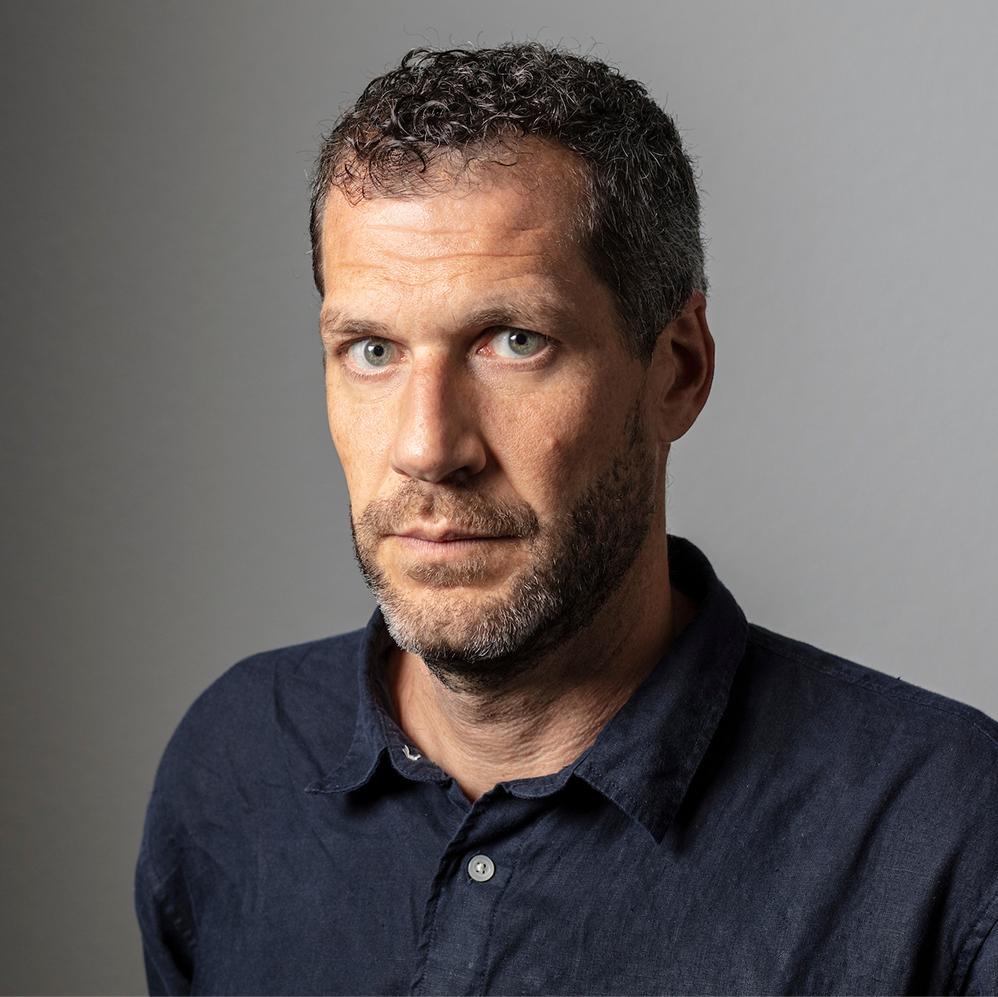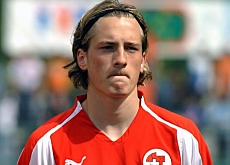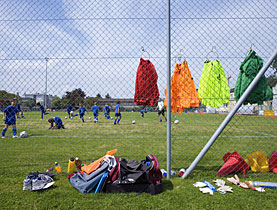European football success “made in Neuchâtel”

Top European football clubs such as Chelsea, Arsenal and Lille have been turning for help to researchers at the Professional Football Players Observatory (PFPO).
This week the Neuchâtel-based organisation published for the first time a global study on the migration of footballers.
“Unique, exhaustive and fascinating” – British newspaper the Sunday Times was full of praise on March 27 for the work of the small team of scientists who since 2005 have collated and analysed statistical data on more than 13,000 professional players in 536 clubs of the 36 top European divisions.
Arsène Wenger, coach of London club Arsenal, Carlo Ancelotti, his rival at Chelsea, and Damien Comolli, director of football at Liverpool, can’t manage without the Swiss reports, according to the Sunday Times.
But the PFPO is no longer content just to dissect footballing demographics. It also supplies precise indications on factors that can lead a team to success.
To do this, the observatory has developed models which allow clubs to improve their policies of long-term recruitment.
“The most important factors are stability on the pitch – above all in defence and midfield – the experience of players in a club and the presence of current internationals. If you add to that match statistics, you get quite a good idea of how a team will perform in the long term,” said co-founder Raffaele Poli.
Stability
It’s no coincidence that English clubs are the most interested in the work coming out of Neuchâtel.
“The culture of applying statistics to sport is more present in Anglo-Saxon countries than in southern Europe,” Poli said.
“The director of football at Chelsea has invited me to present our work several times. Based on that, the club has decided for example to extend the contract of Frank Lampard, a player who is very expensive [in 2008 he signed a five-year contract worth £150,000 (SFr225,000) a week] but essential for the stability of the team.”
Poli pointed out however that poring over statistics would never completely replace the eye of an expert on the pitch.
The use of data was spreading, he added. For example Lille, currently topping Ligue 1 in France, was one of the first clubs to show an interest in the PFPO’s reports.
“Lille’s success is not unconnected to the policy of stability implemented by the club’s directors,” Poli confirmed.
Jonathan Northcroft, author of the Sunday Times article, admitted there may be a “chicken-and-egg element” – the success of players prompts clubs to keep them longer – but said the consistency with which stability is a marker of success was remarkable.
“Four of Europe’s five big leagues [Germany being the exception] are currently led by that country’s most stable club,” he noted.
Migration
The observatory’s success and reputation has pushed the researchers to widen their field of study.
On Monday they published a first report on the global migration of footballers.
“If you want to study migrations in football, it’s essential to cover Latin America, the birthplace of many players. We went through 101 leagues and 6,000 players who were in action last year. We covered practically everyone.”
The results are sometimes surprising: Cyprus is the greatest importer, ahead of Greece, Portugal and England.
“It’s not necessarily the leagues with the greatest visibility that import the most players. It’s become accepted to use foreign players at all levels of competition in Europe,” Poli said.
Swiss situation
Switzerland’s top division is 40 per cent foreign, putting it above the European average of 33 per cent.
These players often progress to more prestigious leagues, confirming Switzerland’s reputation as a springboard.
But a new observation is that the Swiss league is also serving increasingly as a springboard for local players.
“In the 2009/10 season, 39 players who grew up in Switzerland went on to play in the five biggest European leagues, making up the fourth-largest group of expat players behind Brazil, Argentina and France. That’s exceptional for a country of fewer than eight million people, and it shows the success of the Swiss education policy,” Poli said.
However, one must not ignore the flipside, namely that Switzerland is in third place when it comes to letting go of the youngest talent. Information that will certainly not go unnoticed at the Swiss Football Association.
Set up in 2005 by Raffaele Poli and Loïc Ravenel, the Professional Football Players Observatory (PFPO) is a research group combining academics from the International Centre for the Study of Sport (CIES) of Neuchâtel University, the ThéMA research centre of Franche-Comté University, and the Institute of Sports Science (ISSUL) of Lausanne University.
The PFPO generates comparable statistical indicators in the fields of demography, training, international recruitment and mobility of footballers. The data are an essential source of information and a key decision-making tool for clubs, federations, agents and media.
Each year, the PFPO publishes two reports. In January, the Demographic Study of Footballers in Europe catalogues the main characteristics of more than 12,500 footballers in some 525 clubs and 36 top division leagues of European countries. In August, the Annual Review of the European Football Players’ Labour Market looks in detail at trends among the players in the “big five” European leagues (England, Italy, Spain, Germany and France) in terms of training, international recruitment and player mobility.
(Adapted from French by Thomas Stephens)

In compliance with the JTI standards
More: SWI swissinfo.ch certified by the Journalism Trust Initiative






You can find an overview of ongoing debates with our journalists here. Please join us!
If you want to start a conversation about a topic raised in this article or want to report factual errors, email us at english@swissinfo.ch.